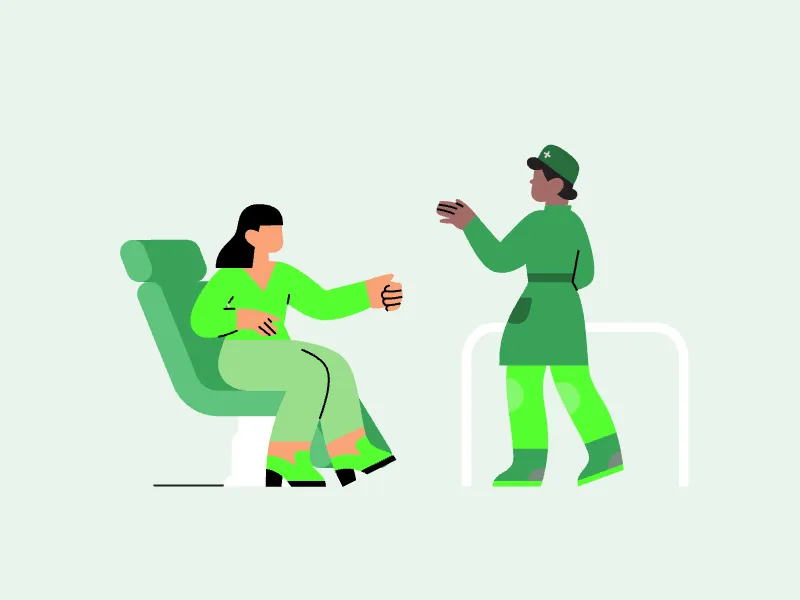What is stress-induced anorexia?
People with anorexia nervosa (AN) often experience high anxiety and stress levels. Stress is often a key trigger in the development of an eating disorder.
Tabs content 1
Tabs content 2
People with anorexia nervosa (AN) often experience high anxiety and stress levels. Stress is often a key trigger in the development of an eating disorder.

Everyone experiences stress. It is the body's natural reaction to change. In small doses, anxiety alerts the body to danger. In most cases, stress relieves itself quickly, and the individual can proceed through life without any significant physical, emotional, or psychological changes. However, some individuals experience behavioral and mental health disorders due to chronic stress, including disordered eating.1
Not only can high levels of the stress hormone lead to changes in eating behaviors, but those with an eating disorder like anorexia nervosa have a higher risk of experiencing chronic stress. This can even lead to stress-induced anorexia.2 Part of the relationship between stress and disordered eating is related to how an individual copes.
People can have an active or avoidance coping style:
Stress-induced food restriction can lead to the same complications as anorexia nervosa. A few complications associated with anorexia and restricting food include:
Part of the treatment for stress-induced AN is finding outlets to relieve stress aside from restrictive eating. Everyone's approach and methods to manage stress are different, but some common ways are:9
At Within Health, we understand the complexities of eating disorders and stress. Our expert team approaches each client with empathy and humanity to develop a personalized care program to address their needs. Each individualized plan strikes a balance between helping clients cope with food and body challenges and exploring the interpersonal concerns underlying their anorexia, including techniques for coping with stress. Contact our admissions team to get started on the recovery journey.
Disclaimer about "overeating": Within Health hesitatingly uses the word "overeating" because it is the term currently associated with this condition in society, however, we believe it inherently overlooks the various psychological aspects of this condition which are often interconnected with internalized diet culture, and a restrictive mindset about food. For the remainder of this piece, we will therefore be putting "overeating" in quotations to recognize that the diagnosis itself pathologizes behavior that is potentially hardwired and adaptive to a restrictive mindset.
Disclaimer about weight loss drugs: Within does not endorse the use of any weight loss drug or behavior and seeks to provide education on the insidious nature of diet culture. We understand the complex nature of disordered eating and eating disorders and strongly encourage anyone engaging in these behaviors to reach out for help as soon as possible. No statement should be taken as healthcare advice. All healthcare decisions should be made with your individual healthcare provider.































Get access to a streamlined experience with our industry-first treatment app — You can attend individual and group sessions, connect with your care team, submit weights and vitals via a numberless scale provided to you, receive meal support, access check-ins and recovery-focused tools for use between sessions.